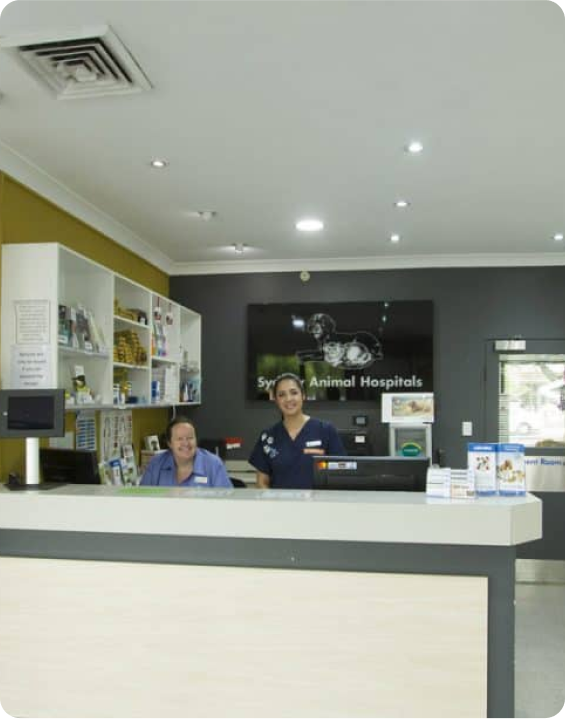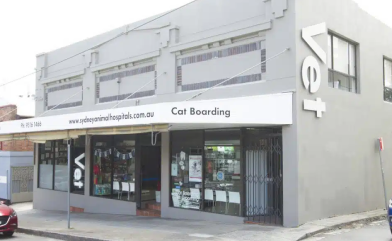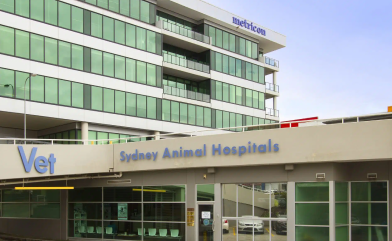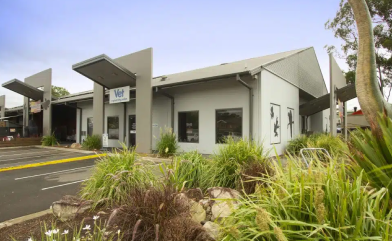Dog Orthopaedic Surgery
Bulldogs have unique physical characteristics, which can predispose them to a range of joint and skeletal conditions. At Sydney Bulldog Clinic, our dedicated veterinary team is here to help ensure your bulldog stays active and pain-free through advanced orthopaedic care.
Restore your dog’s mobility and quality of life!
Dogs and Orthopaedic Issues
Brachycephalic dog breeds like bulldogs are prone to a wide range of orthopaedic problems due to their unique anatomy and genetic predispositions.
Their stocky build and short legs can place a lot of strain on joints. Generally, low activity levels and a tendency to gain weight can exacerbate joint stress, increasing the likelihood of injuries.
Breeding practices to preserve their distinctive physical traits have, unfortunately, also contributed to a higher prevalence of hereditary conditions. These affect their bones and joints, especially around the hips, shoulders, elbows, and knees.
Common Orthopaedic Conditions in Brachycephalic Breed
- Cruciate ligament ruptures: A
cruciate ligament injury in dogs refers to damage in the knee, causing limping and pain in one or both hind limbs.
- Patella luxation: A luxating patella in dogs is the dislocation of the kneecap, which can also cause pain in the hind limbs.
- Elbow dysplasia: Elbow dysplasia causes joint deformities that can lead to arthritis and reduced mobility in the front legs.
- Hip dysplasia: Hip dysplasia in dogs can increase laxity and poor congruity between the pelvis and the hind leg. This can cause progressive damage to the hip joint, resulting in severe arthritis and mobility problems.
- Osteoarthritis: especially prevalent due to high body weight and often lower exercise tolerance of these breeds.
- Spinal abnormalities: The specific anatomy of many of our brachycephalic breeds makes spinal abnormalities such as hemivertebrae and intervertebral disc disease (IVDD) much more common, leading to back pain and sometimes paralysis.
Soft tissue injuries, other joint injuries, and bone cancer are also possible.
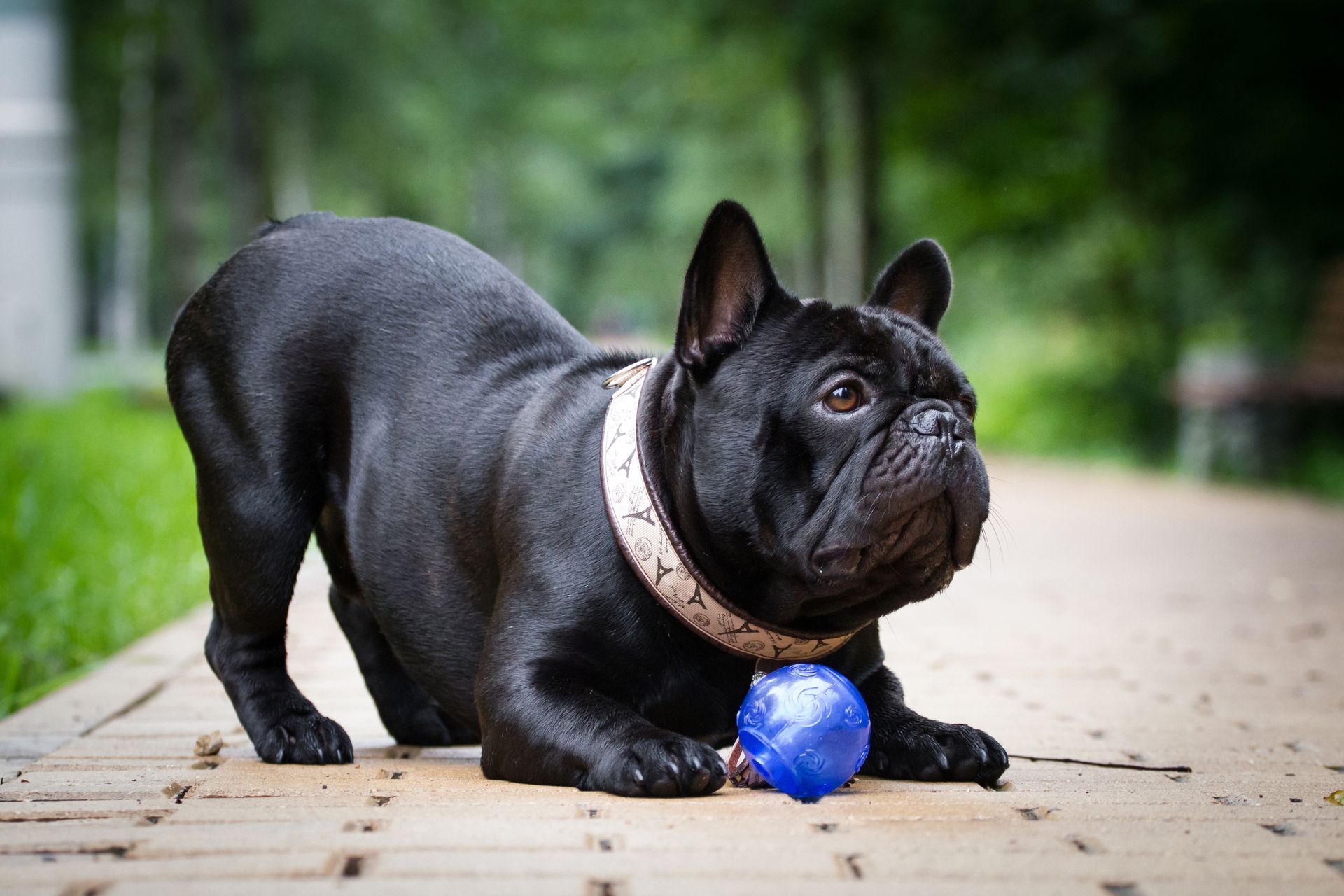
Symptoms of Orthopaedic Problems in Dogs
- Limping or lameness.
- Stiffness.
- Swelling or tenderness in the joints.
- Visible discomfort or pain.
- Reluctance to walk or play.
- Difficulty standing, walking or jumping.
How to Diagnose Joint and Leg Injuries in Dogs
A veterinarian will conduct a physical examination to test the movement in your dog’s limbs and to see where any pain might be located. Then, the most accurate way to interpret joint damage in your dog is to utilise the advanced diagnostic tools at one of our Sydney clinics.
Our vets use state-of-the-art diagnostic technology. This includes digital X-rays to get detailed imaging and CT scanners for in-depth joint and bone evaluations to better understand the extent of the condition.
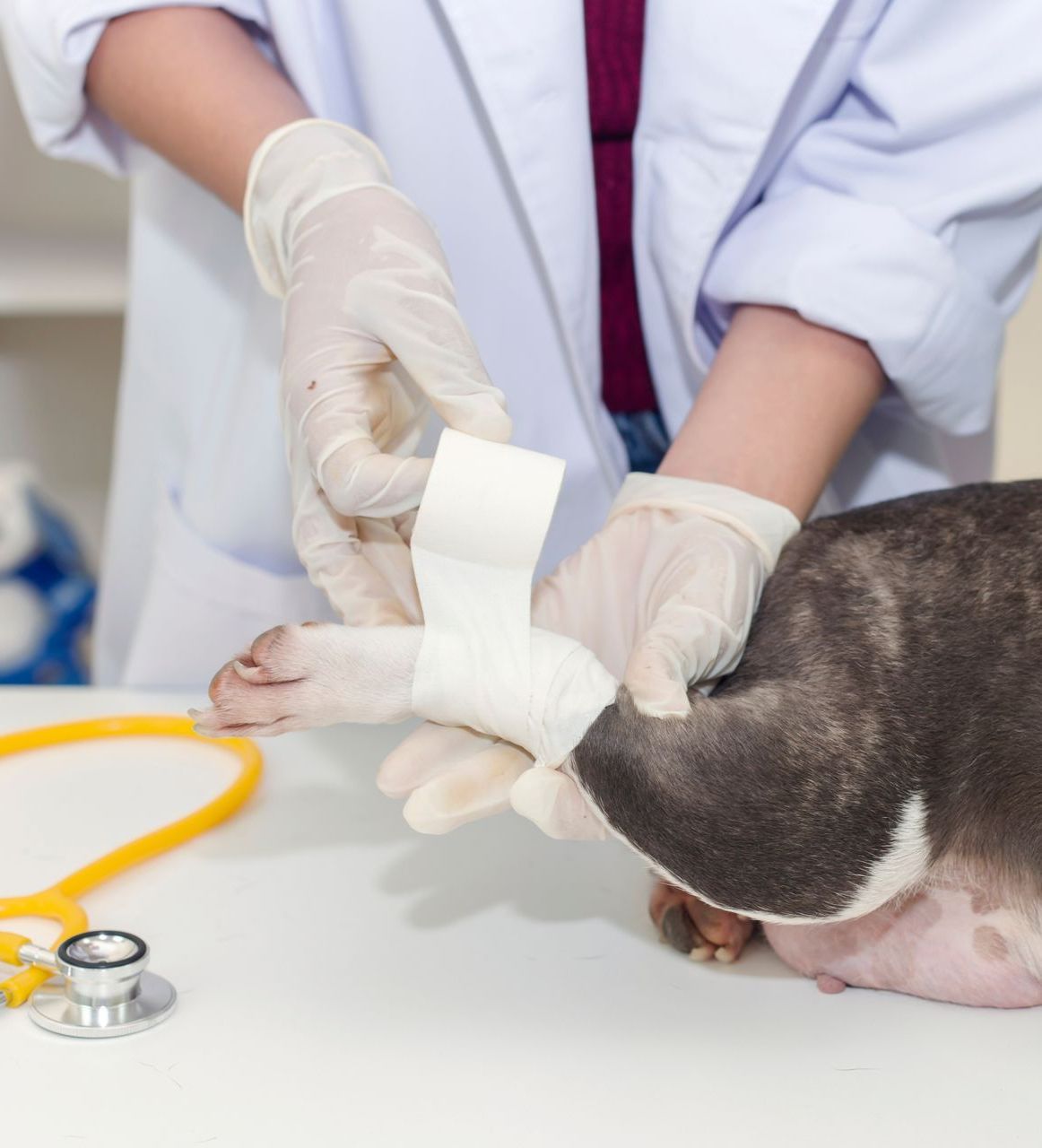
Orthopaedic Pet Surgery Options
If your furry friend is suffering from something much more serious than a sprain or strain, sometimes, joint surgery for dogs is recommended to repair the damage.
Orthopedic surgery for dogs has many benefits. It can improve their well-being and extend their lifespan by providing pain relief, restoring mobility, correcting deformities, aiding in fast recovery, and preventing the progression of a painful or restrictive condition.
Here at Sydney Bulldog Clinic, we offer a range of orthopaedic surgical solutions tailored to dogs' unique needs. This includes (but is not limited to):
- Cruciate repair: Dog cruciate ligament surgery like tibial plateau leveling osteotomy (TPLO surgery for dogs) is ideal for stability and to significantly reduce pain and discomfort.
- Kneecap stabilisation: Corrective surgery for patella luxation (also known as MPL surgery in dogs) is recommended to restore proper alignment and function of the kneecap.
- Hip surgery: Preventative procedures to improve hip conformation in affected dogs (based on x-rays), such as juvenile pubic symphysiodesis, as well as corrective or replacement procedures to improve joint function and reduce pain.
- Elbow surgery: Corrective procedures to improve joint function and reduce pain.
- Fracture repair: Using plates, screws, or external fixation devices to promote rapid healing.
Other non-surgical options may include platelet-rich plasma (PRP) injections, stem cell therapy and physiotherapy.
Don’t wait for your dog’s discomfort to worsen. Contact us today to discover how we can help!
Post-Surgery Care and Rehabilitation
We provide your dog with comprehensive aftercare to achieve optimal results and ensure a smooth recovery process.
This can include tailored pain management plans and guidance on when your dog can return to exercising and resume other physical activities.
Our dedicated physiotherapists and rehabilitation team offer physiotherapy and hydrotherapy, which speed up recovery and help your pet regain strength, mobility, and function.
Post-operative X-rays are also important to monitor your pet’s healing progress and to make sure the surgical intervention was successful.
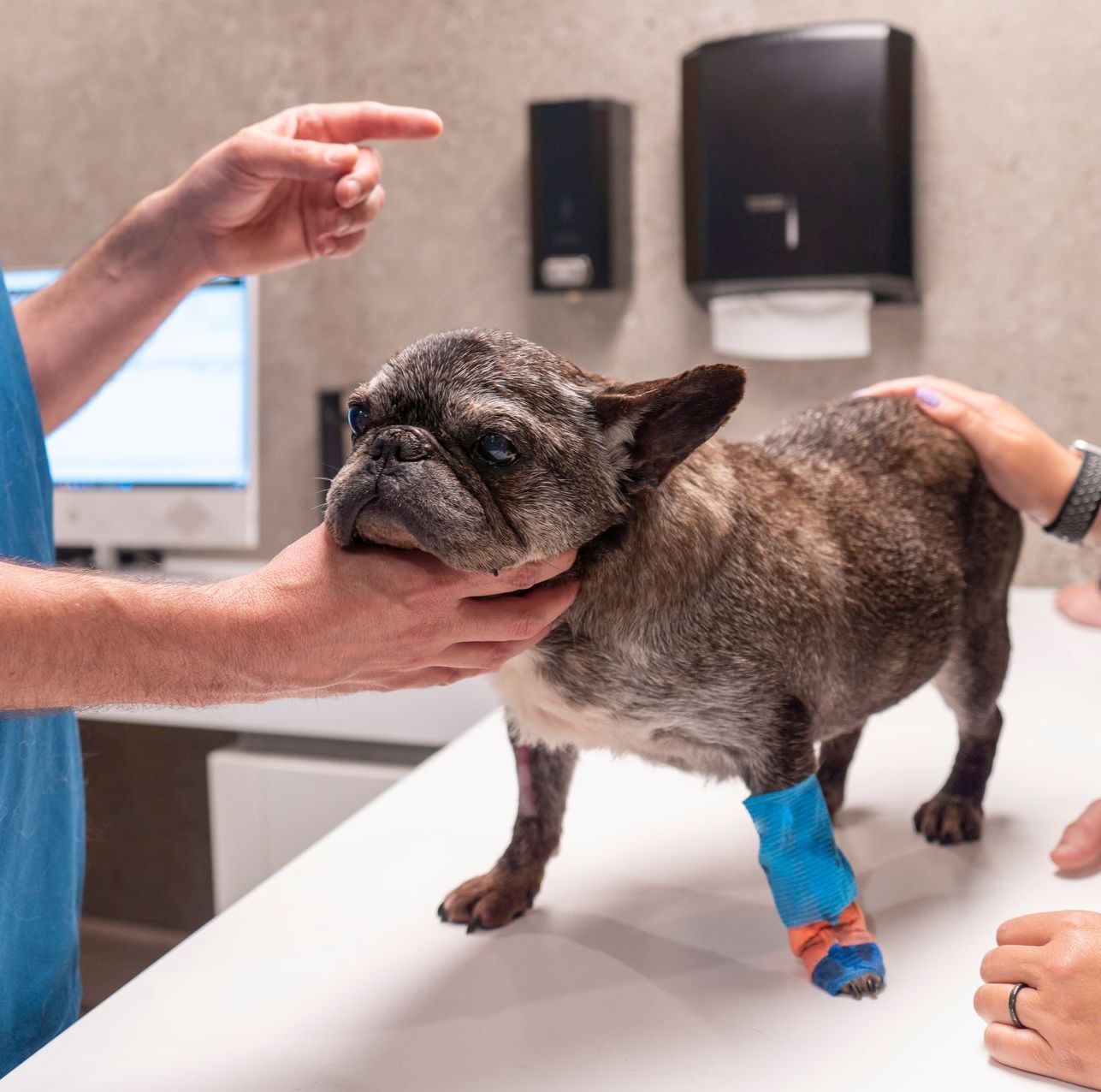
Choose Sydney Bulldog Clinic for Dedicated Brachycephalic Dog Orthopaedics Services
Helping dogs move freely and comfortably for a happy, healthy life
The Sydney Bulldog Clinic veterinary team is highly trained in conducting orthopaedic procedures. From minimally invasive surgeries to advanced joint repairs, we rely on skill, expertise and cutting-edge technologies to deliver the best outcome for your best friend.
We treat every dog that comes into our care like our own, ensuring their stay with us (no matter how long or short) is a comfortable and stress-free experience.
Our dedicated brachycephalic breed services, such as dog orthopaedic surgery, are offered throughout our usual
Sydney Animal Hospitals clinics. See specific clinic addresses and details below.
Our Clinic Locations
Sydney Animal Hospitals have 7 locations across Sydney for your convenience
FAQs
Can Orthopaedic Issues in Dogs Be Prevented?
While many genetic predispositions in bulldogs can not be avoided, maintaining a healthy weight, providing regular exercise, and avoiding high-impact activities can reduce stress on joints and help prevent some issues from developing or worsening.
Is Surgery Always Necessary for Orthopaedic Conditions?
Not always. Certain conditions or mild cases can often be managed with medication, physical therapy, weight management, and lifestyle adjustments. However, severe or chronic conditions often require surgical intervention to restore mobility and alleviate pain.
Are Bulldogs Prone to Complications During Surgery?
Bulldogs’ unique anatomy can make anaesthesia and surgery more complex, but our experienced veterinary surgeons are trained to manage these challenges.
How Much Does Orthopaedic Surgery Cost?
Costs vary depending on the procedure, the complexity of the case, and the veterinary clinic. On average, operations like cruciate ligament repair can range from $3,000 to $6,000 or more. Factors such as pre-operative tests, using a veterinary anaesthetist, and post-operative care can also influence the final cost. It’s best to consult your vet for a detailed quote tailored to your dog’s needs.
What Is the Recovery Process of Joint Surgery for Dogs?
Recovery involves rest and limited movement for 6–12 weeks, pain management through medication, rehabilitation exercises, and regular follow-up appointments to monitor healing. With proper care, most dogs recover well and regain significant mobility.
Experienced veterinary care for Brachycephalic Breeds at Sydney Bulldog Clinics
At Sydney Bulldog Clinics we provide experienced veterinary care and proactive measures, including obstructive airway corrective surgery, to ensure the well-being of your beloved pet.


